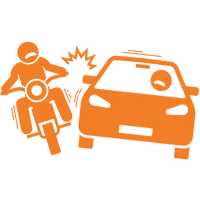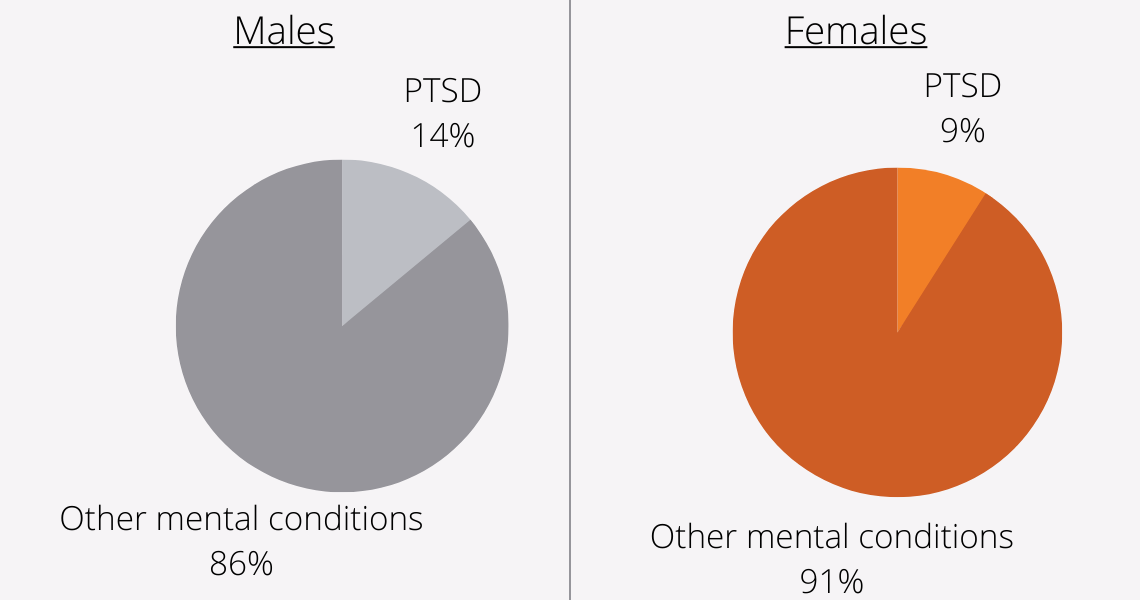PTSD, post-traumatic stress disorder, is a mental health disorder that we see arise due to workplace conditions and motor vehicle accidents. According to the law in NSW, psychological and psychiatric conditions are considered an injury that makes people subject to various compensation benefits.
Compensation payouts for PTSD are calculated on a case-by-case basis; meaning that there isn’t any fixed amount, but an experienced personal injury lawyer can help you estimate the PTSD compensation amount that you may be entitled to.
What can cause PTSD?
Safe Work Australia states that 6% of all workers compensation claims are for mental illnesses. These traumas include but are not limited to:
- Serious traffic accidents
- In-person and virtual workplace bullying
- Severe health problems
- Physical assault
- Sexual assault
Generally, the symptoms of PTSD develop within the first month and the injured person may find themselves re-experiencing negative thoughts, becoming isolated and feeling hyperarousal.
Other psychological injuries such as depression can increase the prevalence of PTSD.

PTSD compensation benefits
People may suffer from PTSD due to multiple reasons but the most common personal injury compensation claims are generally considered car accidents and workplace bullying.
You can see below the compensation benefits for two different cases: car accident and work-related claims.
Car accident related PTSD compensation claim
Can you get PTSD from a car accident? Yes. For example, a person who suffers from PTSD due to a car accident may be entitled to:
- Income support payments: Weekly payments can be claimed as a loss of income if you have lost income as a result of the car accident.
- Medical expenses: Reasonable and necessary medical expenses can be covered. Payments will cease after 6 months if the injuries are assessed as minor psychological injuries such as mild depression or minor physical injuries.
- Lump sum payout for future loss of income: Future loss of income and loss of opportunity can be claimed by way of a lump sum if the injured person was not mostly at fault and the injuries are not minor psychiatric injuries or minor physical injuries.
- Lump sum payout for pain and suffering: Lump sum compensation to take into account pain and suffering can be claimed if the injuries are assessed as being greater than 10% whole person impairment.

Work related PTSD compensation claim
Can you get PTSD from work? Yes, every year up to 8000 Australians are compensated due to work-related mental disorders, and post-traumatic stress disorder accounts for more than 10% of the total claims. If you suffer from PTSD due to work, you may be entitled to claim:
- Weekly wages: Weekly payment based on your preinjury wages
- Medical expenses: Reasonable and necessary medical expenses due to your injuries
- Lump sum payout for future loss of income: If the injuries are assessed at being greater than 14% whole person impairment for a primary psychological injury. The threshold is greater than 0% for exempt workers. Click here to learn more about exempt workers.
- Common law/work injury damages payout: If the employer was negligent and injuries are assessed at being greater than 14% whole person impairment.
Work related PTSD compensation amount in Australia
Work-related compensation amounts are determined on a case-by-case basis. However, it’s possible to estimate the permanent impairment payment amount in NSW by using the table below. The below is for non-exempt workers as exempt workers can claim a lump sum payment as long as their injuries are greater than 0% whole person impairment.
| Whole person impairment (WPI) | Permanent impairments payment amounts |
|---|---|
| 0% – 10% | $0 |
| 11% – 14% | $24,810 – $34,530 |
| 14% – 20% | $37,770 – $53,970 |
| 21% – 30% | $57,210 – $86,370 |
| 31% – 40% | $91,700 – $139,760 |
| 41% – 50% | $145,100 – $193,160 |
| 51% – 60% | $267,270 – $341,270 |
| 61% – 70% | $415,280 – $489,280 |
| 71% – 100% | $563,270 – $637,290 |
Work related PTSD compensation amount in Australia

TPD claims for PTSD
Regardless of the cause of PTSD and of your occupation, PTSD may prevent you from working. In such a case you may be considered to have a Total and Permanent Disability (TPD) and depending on your policy you may be entitled to claim a TPD insurance superannuation payout for your PTSD injury.
Time limits for a PTSD claim

For car accident claims
- 28 days to report the accident to the police
- 28 days to claim back pay for loss of earnings.
- 3 months to make a motor vehicle accident claim
- 3 years to make a common law claim by filing in the Personal Injuries Commission or in Court depending on your claim.

For work accident claims
- As soon as possible to report the accident to the employer
- 6 months to submit a workers compensation claim with your employer
- 3 years to make a work injury damages/common law claim
Which occupations are more at risk?
Exempt workers (police officers, paramedics and firefighters) followed by welfare and community workers, prison officers and then bus drivers and rail drivers are the most at risk occupations relating to mental disorders.

Which occupations are more at risk?
According to Safe Australia’s data between 2008 and 2013, PTSD claims account for 14% of men’s psychological injury claims. For women, this rate is 9%.

How can I find a No Win No Fee PTSD injury lawyer?
Working with an experienced personal injury lawyer for your PTSD injury claim can give you peace of mind that your claim is being handled by a caring and senior compensation lawyer. We know that when you have a mental health condition such as PTSD the process can be overwhelming, and everything seems complicated. We take pride in ensuring our clients understand their entitlements, process involved and what to expect.
A No Win No Fee lawyer can help you to get the best PTSD injury payout possible. Contact our No Win No Fee lawyer to get clear and straight forward legal advice!

Issa Rabaya
• Bachelor of Laws
• Graduate Diploma in Legal Practice
• Approved Legal Service Provider to the Independent Review Office
• Member of the Law Society




